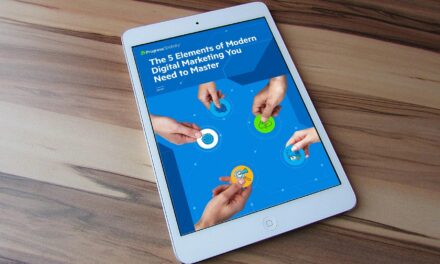In the past year, businesses swiftly adapted to rapid technological changes and economic uncertainty. B2B CMOs embraced challenges and aligned with CFOs, emphasising brand building and creativity for competitive edge and long-term growth.
Despite financial constraints, 2023 saw B2B CMOs embracing the challenges, enhancing financial fluency and aligning with CFOs, emphasising the importance of brand building for long-term growth and creativity for a competitive edge.
This progress sets a strong foundation for marketing leaders in 2024, where a strategic blend of art and science, along with generative AI’s potential, will be crucial. Just as the internet revolutionised the 1990s, AI is not only redefining the concept of work by enhancing productivity but also freeing up time for creative and customer relationship nurturing.
As audiences seek authentic connections, marketers will intensify efforts to humanise their brands for increased equity and trust. Here are three key transformative marketing trends that we believe will shape the future world of work.
CMOs will prioritise improving the measurement framework
B2B CMOs are prioritising the enhancement of the measurement framework. According to LinkedIn’s ‘B2B Marketing Benchmark’ report, in order to navigate the changing landscape, B2B marketing leaders are strengthening their financial acumen, with 83% learning the language of finance.

The CFO-CMO relationship is growing stronger, with 89% of B2B CMOs enhancing their skills to demonstrate the value of brand marketing to the CEO and CFO. Brand-focused initiatives will also remain a priority for B2B marketers, emphasizing the importance of brand building in the coming year.
In the quest for long-term ROI in B2B, LinkedIn has introduced tools such as the CMO Scorecard and Revenue Attribution Report to measure brand marketing effectiveness and connect CRM data to LinkedIn marketing campaigns. These tools empower B2B marketers to demonstrate the impact of their work on business outcomes and implement more strategic plans.
Marketers who leverage AI will have an advantage
Artificial Intelligence (AI) is extending its influence beyond traditional boundaries of the technology sector when it comes to marketing solutions. In LinkedIn’s Future of Work report, 90% of participants said they were likely to start or continue using AI for marketing activities. Among current users of AI, 61% said it allowed them to generate more content in less time, and 53% said it made their content more engaging.
The APAC region is actively embracing this technological wave, with one in three B2B marketing leaders interested in integrating Generative AI into their marketing activities. Latest LinkedIn research shows that a staggering 87% of marketers in APAC believe AI will be a game-changer in supporting their workload, underlining the transformative potential AI holds.
The strategic implementation of AI in 2024 will be imperative for CMO’s who need to increasingly demonstrate marketing’s impact on the company bottom line and business measurement frameworks. AI technologies can enhance measurement accuracy and AI will be key to showcase the outcomes of B2B marketing efforts. This shift towards AI-driven marketing will allow marketers to engage with audiences to a whole new level of novel and captivating. As such, marketers should experiment with integrating AI into their workflow. This approach not only eases the transition due to familiarity but also helps maximise the return on tech investments.
Authentic, human-centric approach is key to building trust
Recognising AI as a tool in the marketing toolbox – rather than a replacement for human ingenuity – is paramount. As global B2B marketing leaders plan to boost technology use, particularly generative AI, the key to success is starting small, simplifying the integration process, and gradually incorporating AI tools in 2024 rather than waiting until it is ubiquitous.
By experimenting with familiar tools and gradually incorporating AI, marketers can ease the transition and increase the likelihood of success.
The more authentic your campaigns are, the better they will connect with your audience. This is reflected in the types of skills B2B marketing teams are picking up – while hard skills like marketing technology and data analytics mastery are in demand globally, in APAC, soft skills such as storytelling and ability to connect with the right audience (38%) as well as innovative thinking (34%) have also been gaining popularity.
The blend of creativity and strategic AI use is reshaping marketing, opening new opportunities beyond traditional sectors. Instead of viewing AI as a threat, marketing leaders should embrace a human-centric approach, considering AI as an enabler rather than a replacement for human ingenuity.



















